いきます (to go), きます (to come) and かえります (to go home, to return) are special verbs and they can be used with a verb stem + に to include a purpose.


いきます (to go), きます (to come) and かえります (to go home, to return) are special verbs and they can be used with a verb stem + に to include a purpose.
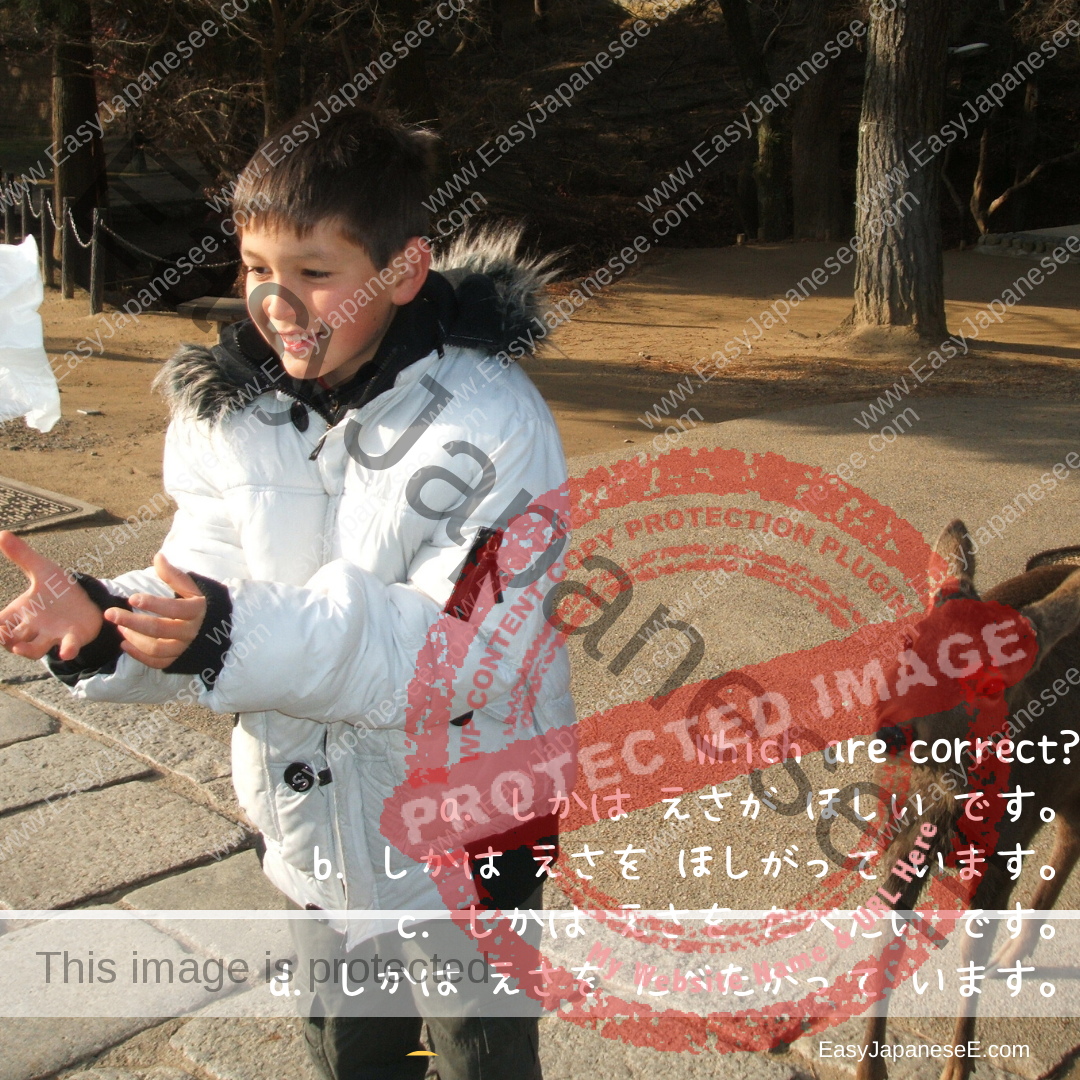
Which are correct?a. しかは えさが ほしい です。b. しかは えさを ほしがって います。c. しかは えさを たべたい です。 d. しかは えさを たべたがって…
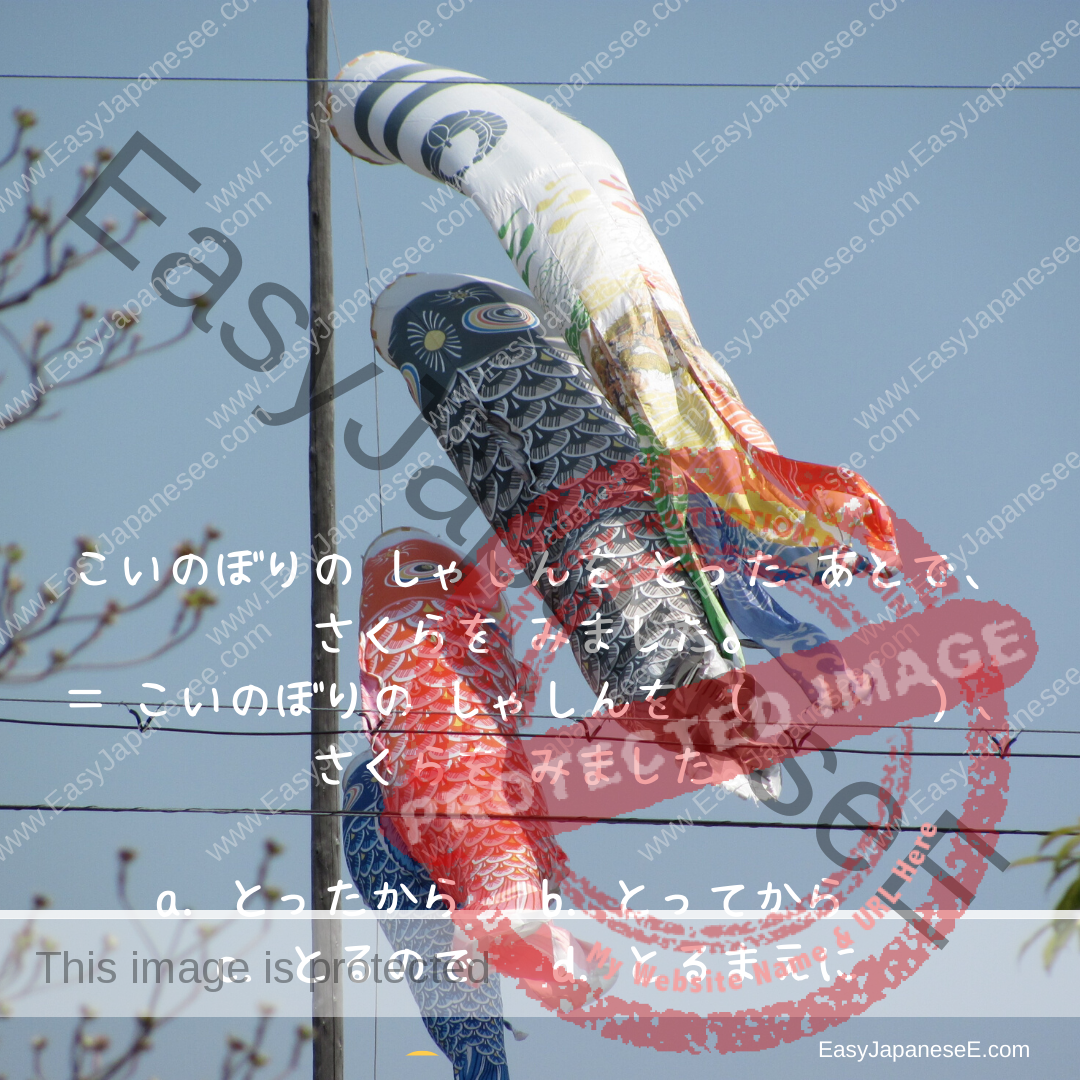
こいのぼりの しゃしんを とった あとで、さくらを みました。 = こいのぼりの しゃしんを ( )、さくらを みました。 a. とったから b. とってから c. とるので d. とるまえに The…
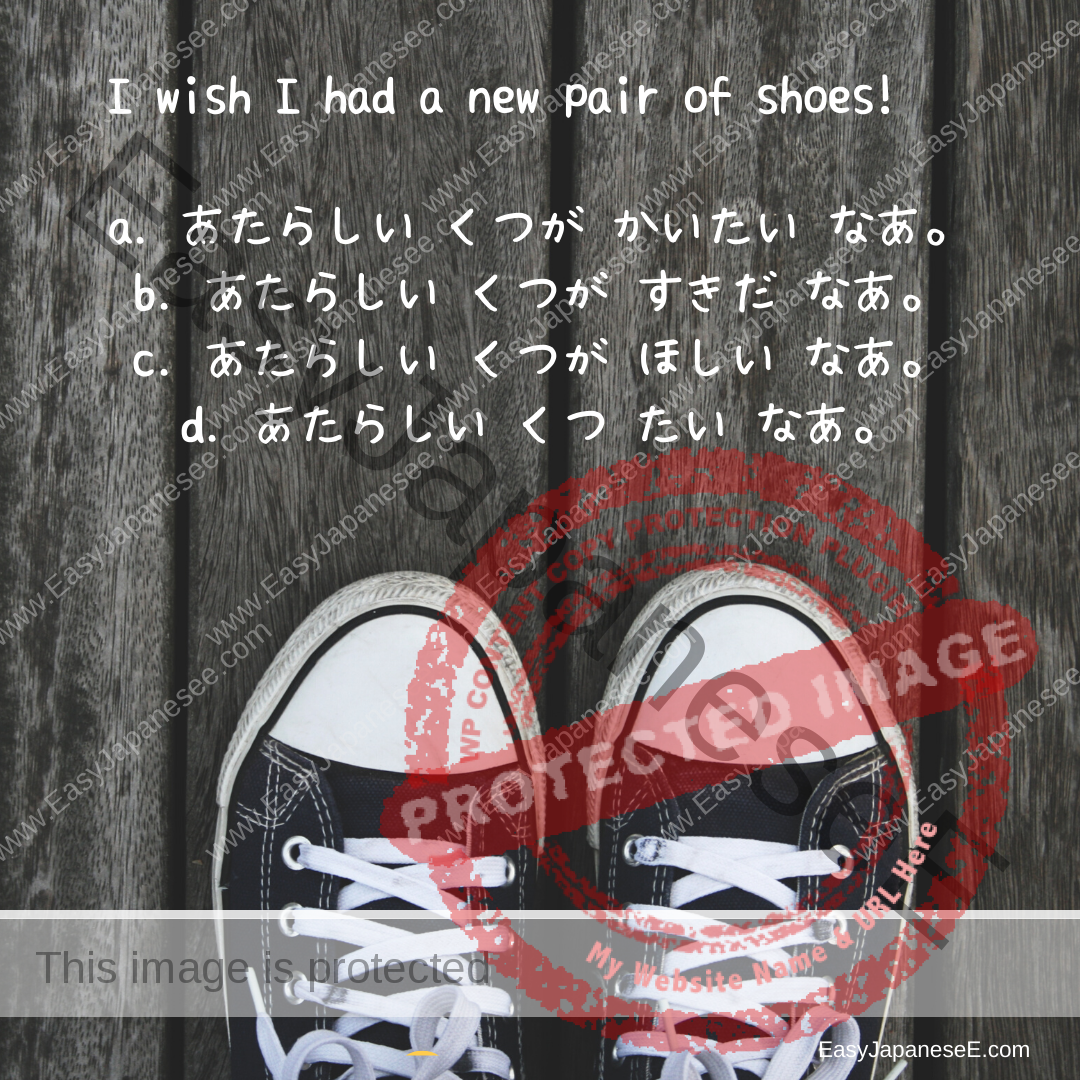
I wish I had a new pair of shoes! a. あたらしい くつが かいたい なあ。b. あたらしい くつが すきだ なあ。c. あたらしい くつが…
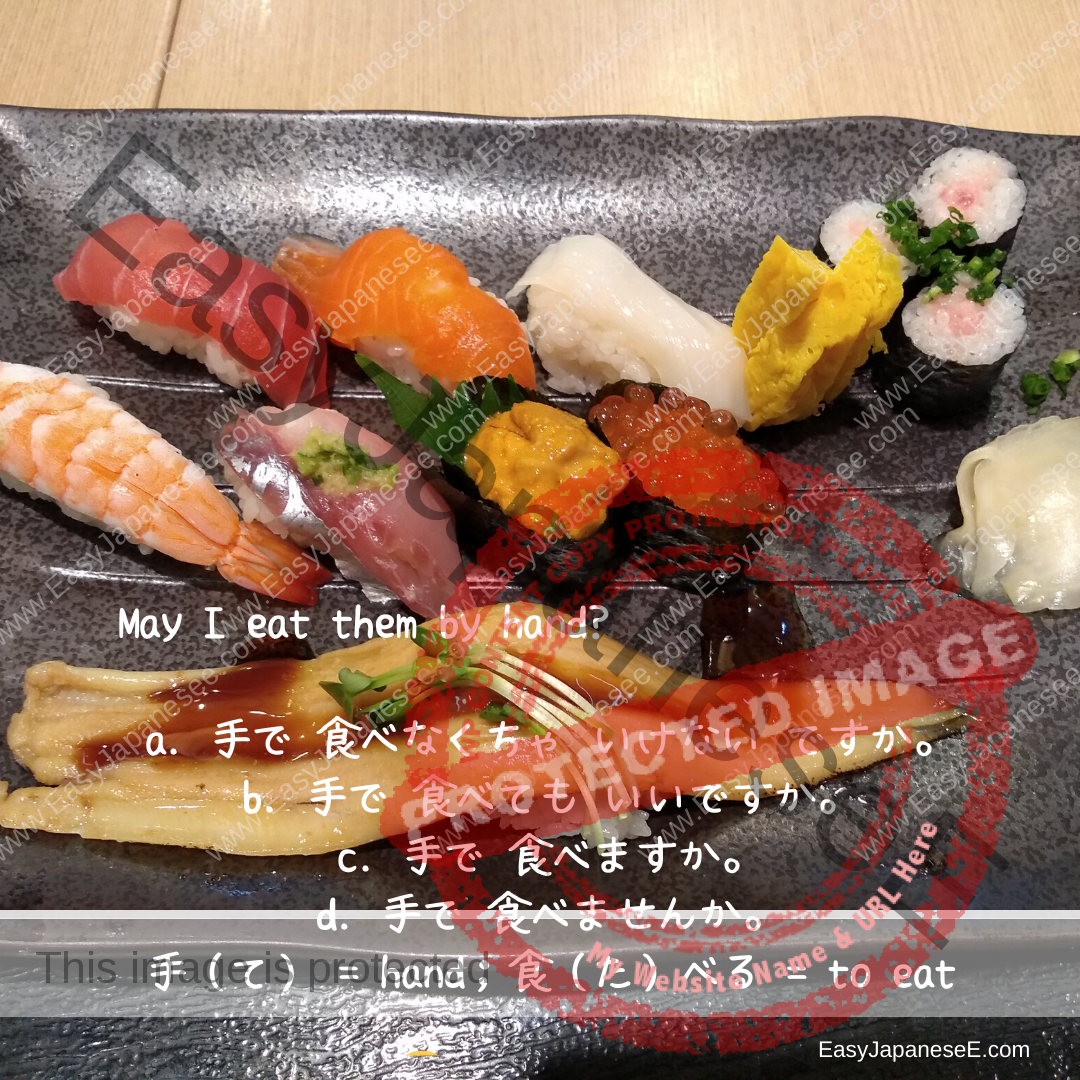
Oh, these sushi pieces look so good! I want to eat them with my hand, but my host family…
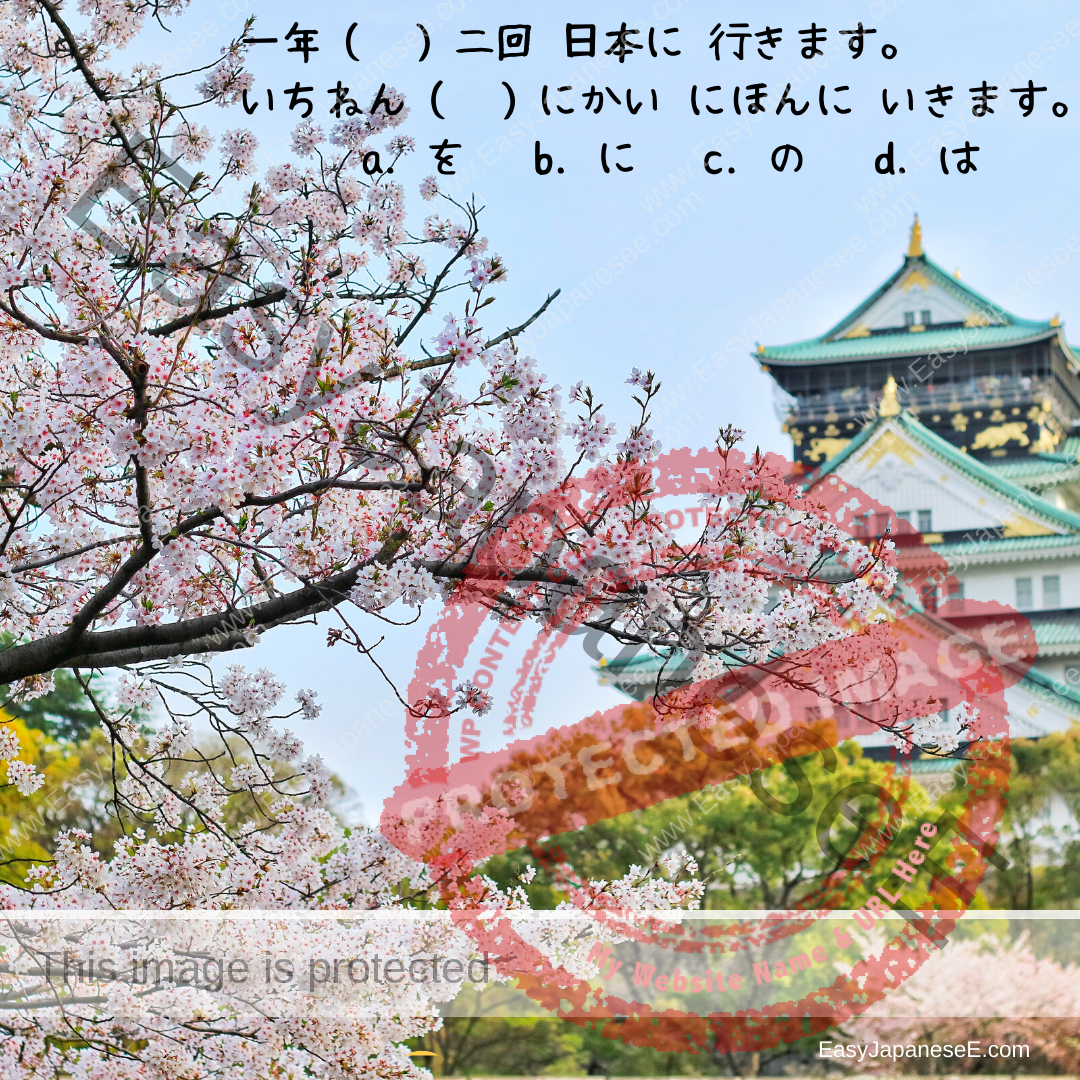
一年( )二回 日本に 行きます。a. で b. に c. の d. は The answer is b.に. When you want…
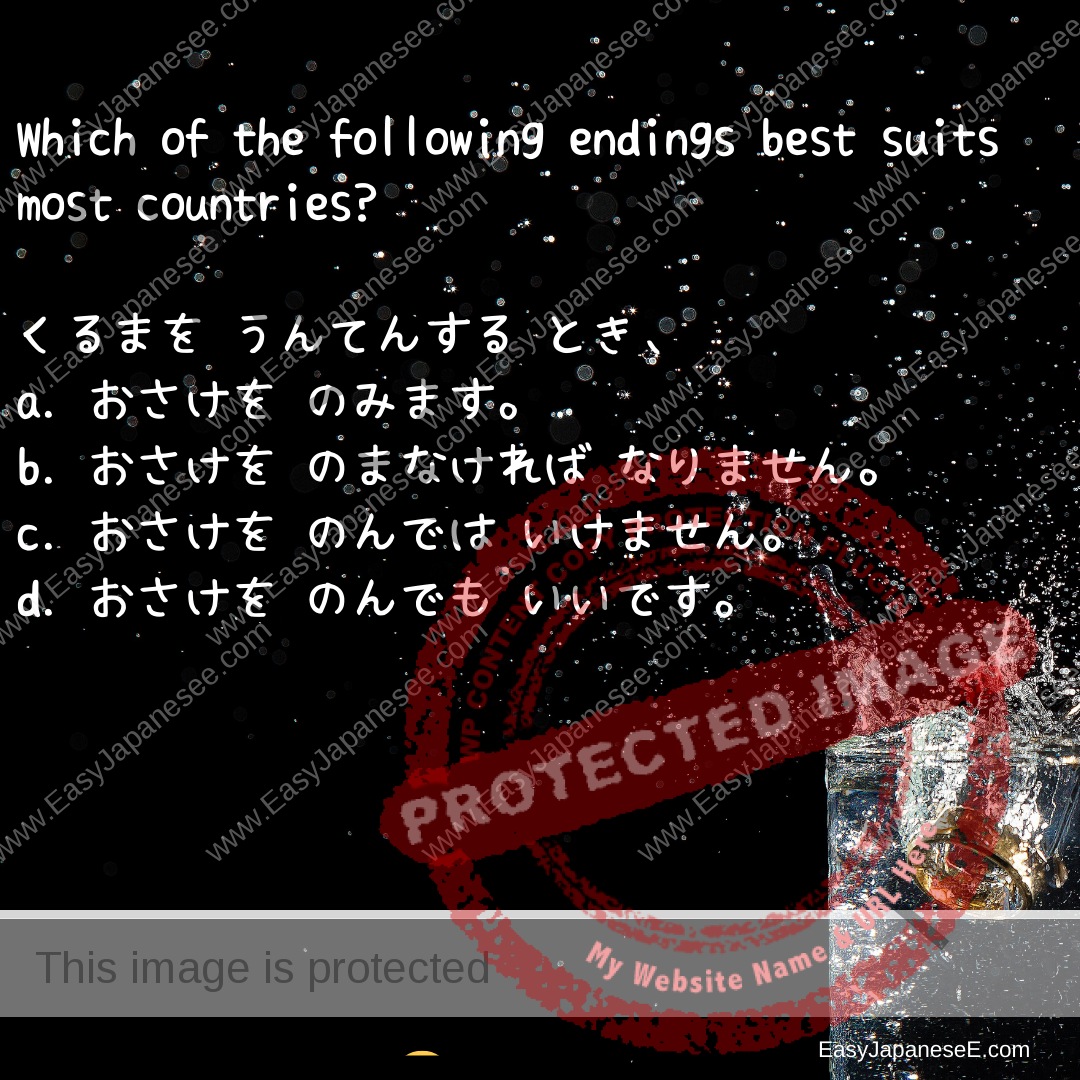
Which of the following statements applies to most countries. a. くるまを うんてんする とき、おさけを のみます。b. くるまを うんてんする とき、おさけを のまなければ なりません。c.…
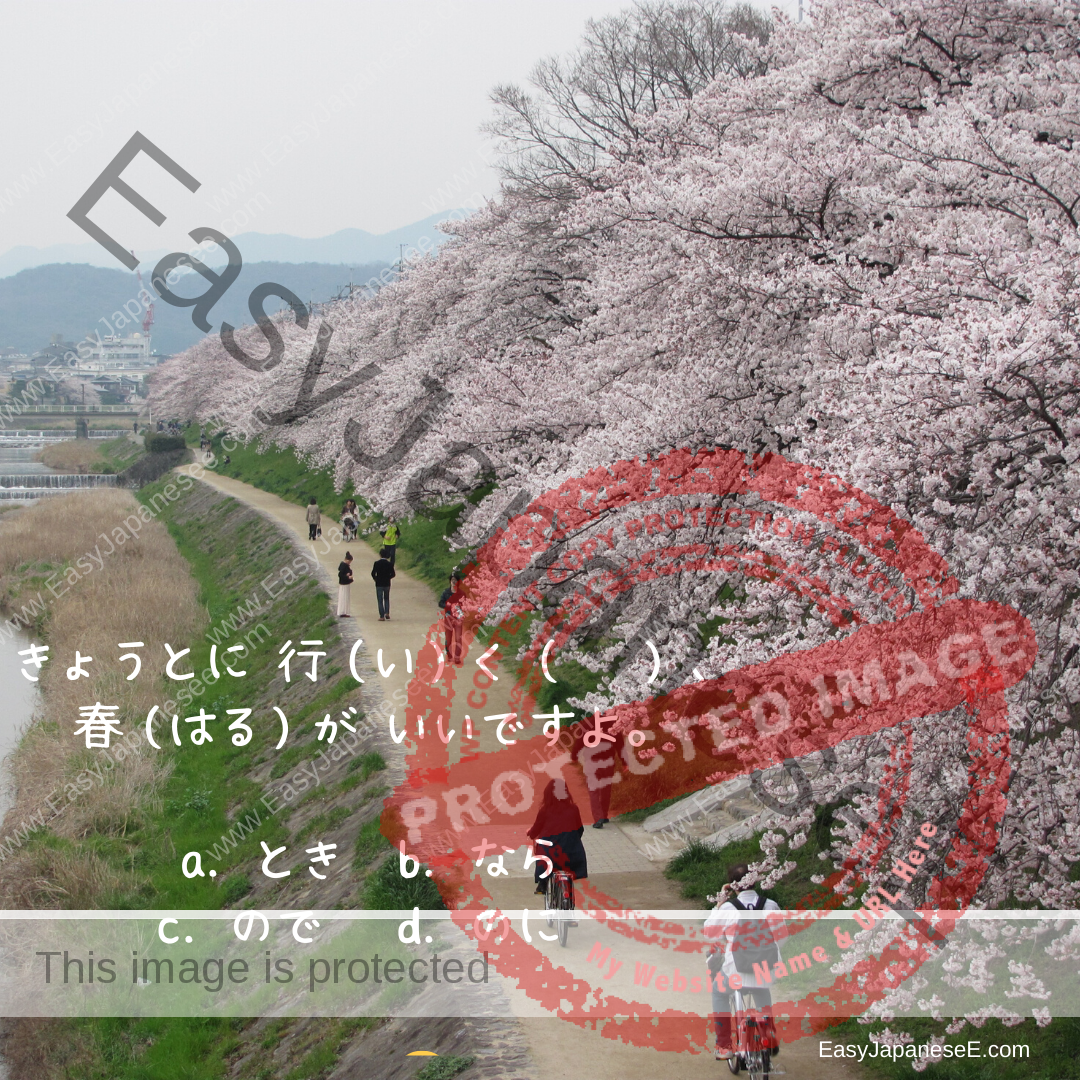
The question is:きょうとに 行(い)く(_)、春(はる)が いいですよ。 a. とき b. なら c. ので d. のに The answer is b. なら …

The question in the photo is: How to say “Shall I help you?” in Japanese. Which of the following is…
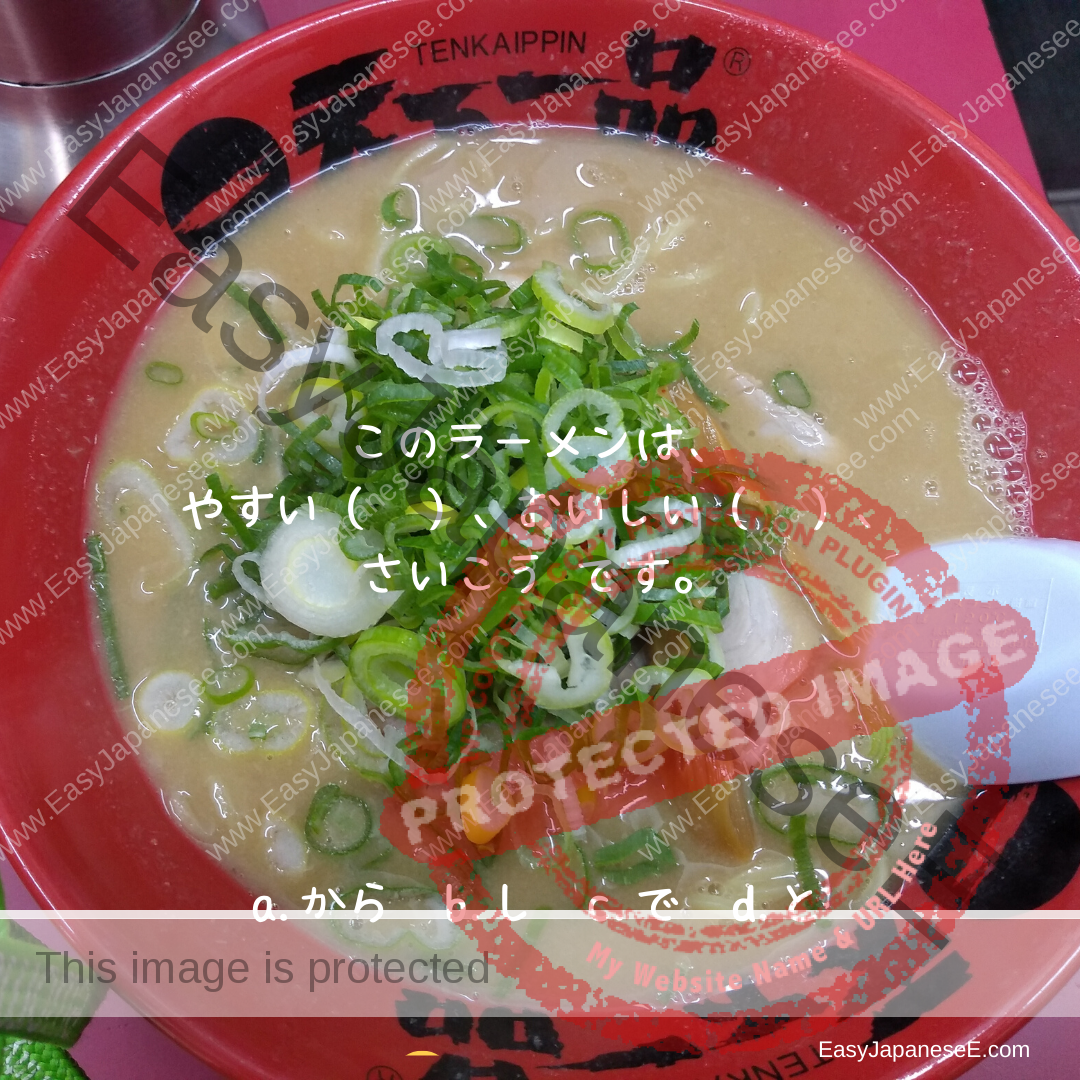
The question is: このラーメンはやすい( )、おいしい( )、最高(さいこう)です。 Both brackets take b. し*. ~し is often used to list up…
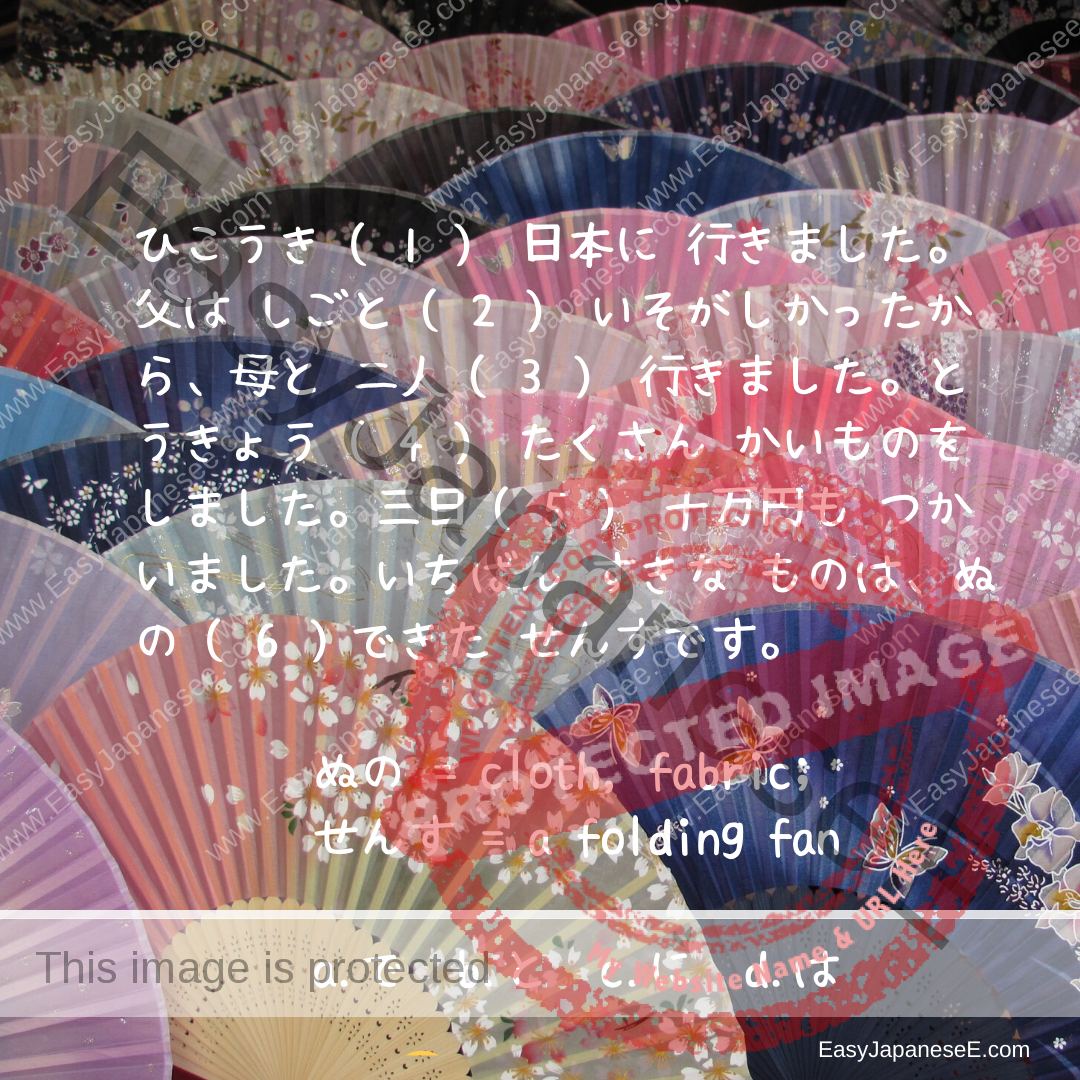
The question passage was: ひこうき( 1 ) 日本に 行きました。父は しごと( 2 ) いそがしかったから、母と 二人( 3 ) 行きました。とうきょう( 4 ) たくさん…
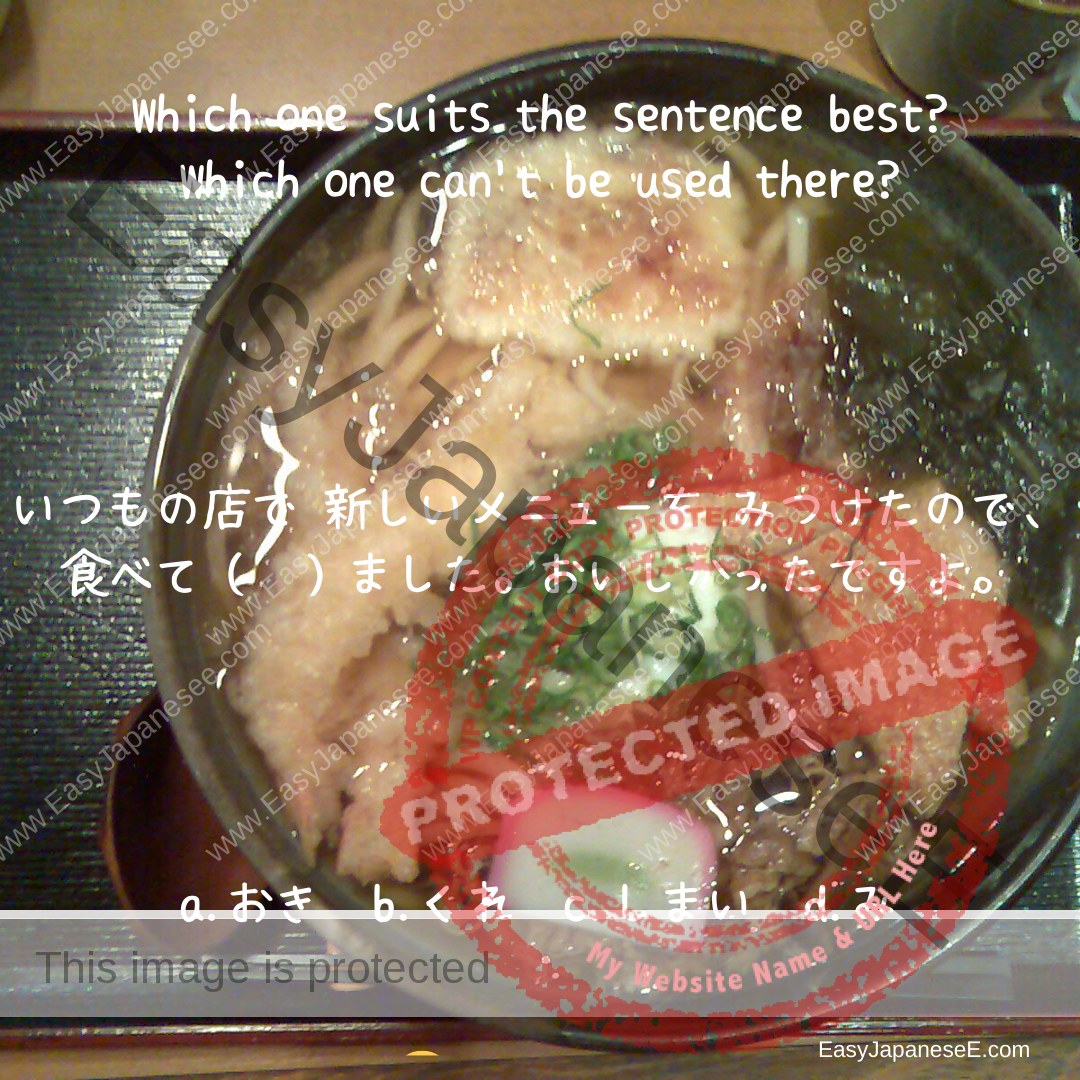
The most suitable answer is c.み and the word that cannot be used there is b.くれ. いつもの店で 新しいメニューを みつけたので、食べてみました。おいしかったですよ…
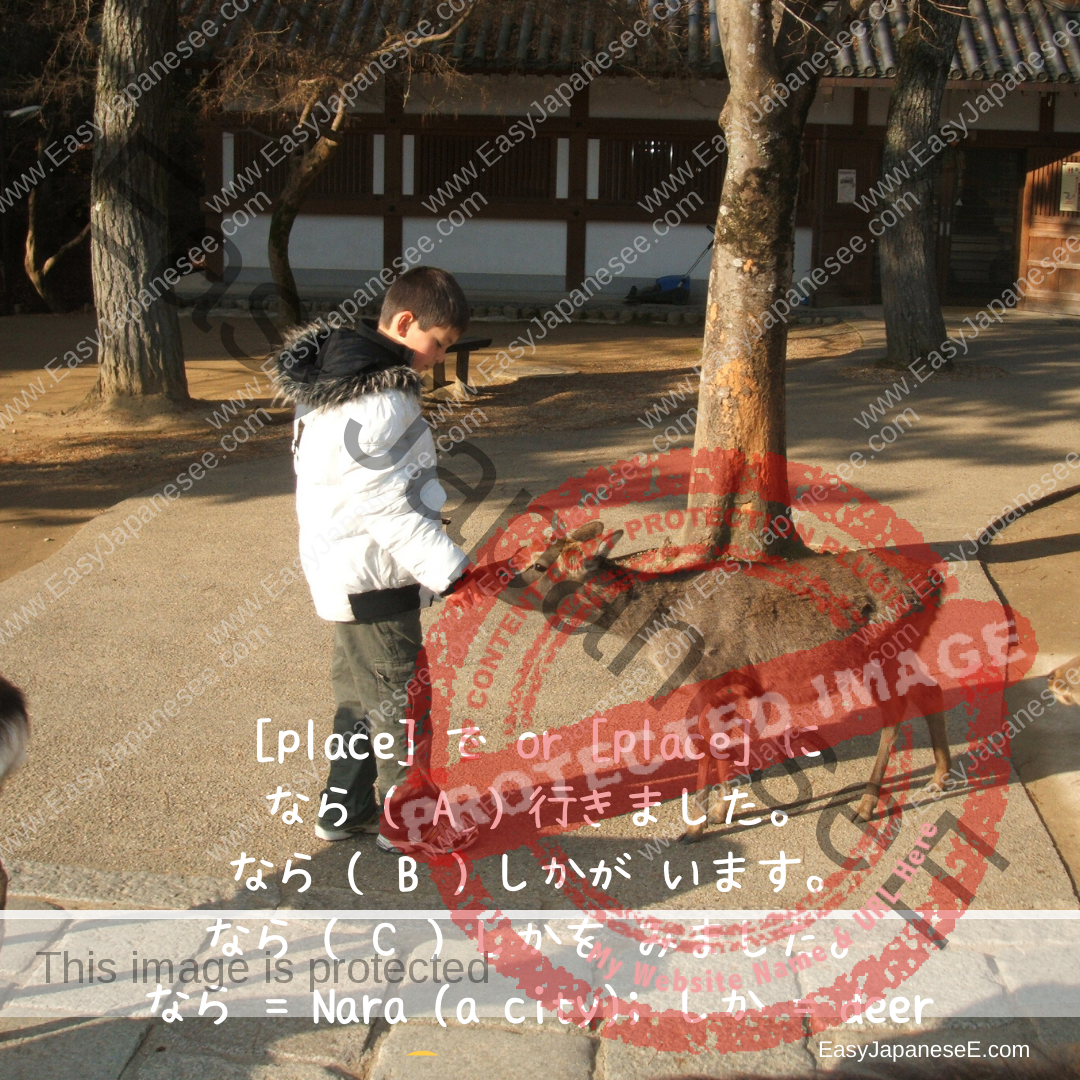
Particles are always tricky and many people have trouble telling between the place markers に and で. This post explains which to use when.
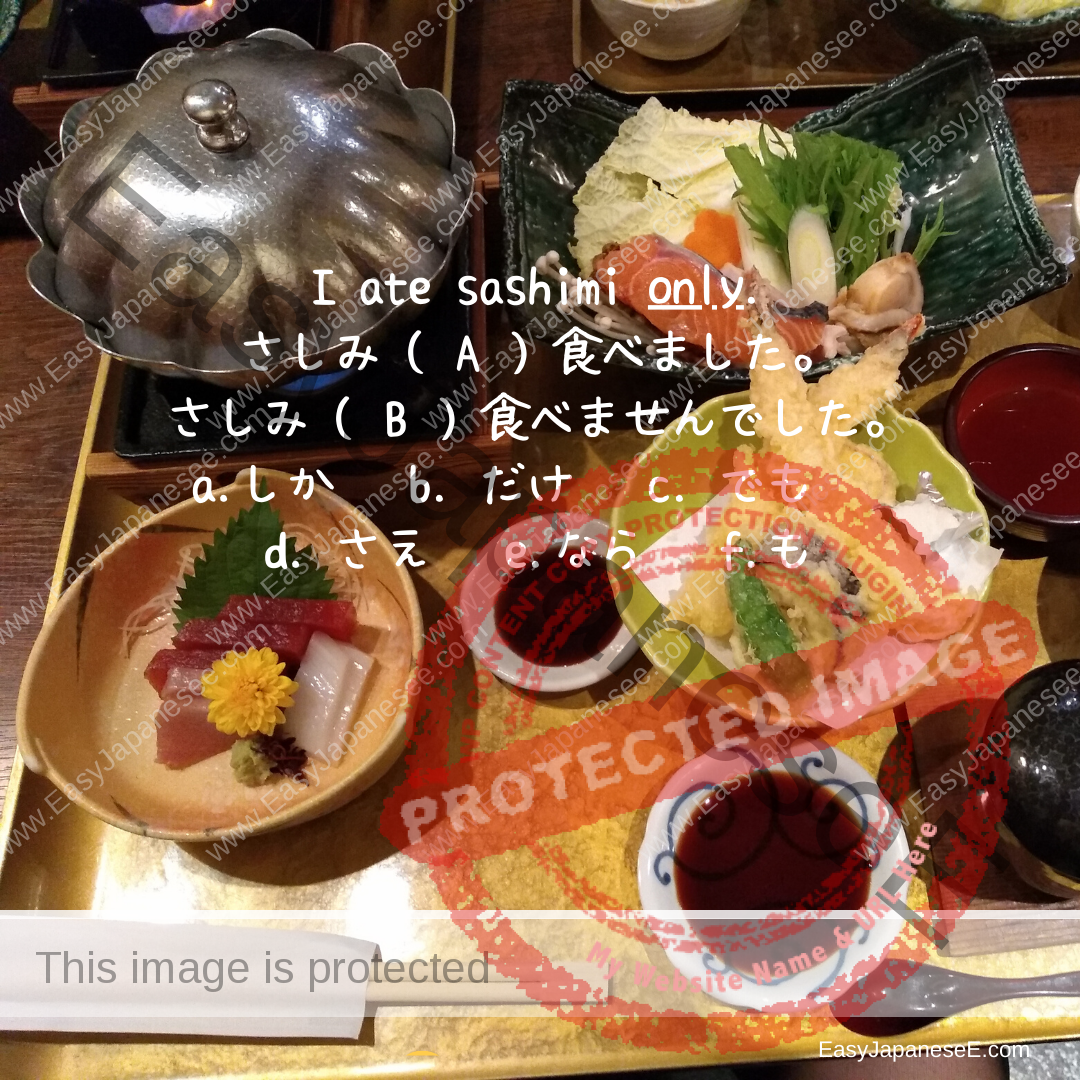
The correct answers are A – b. だけ and B – a.しか. In order to express the meaning of “only,”…
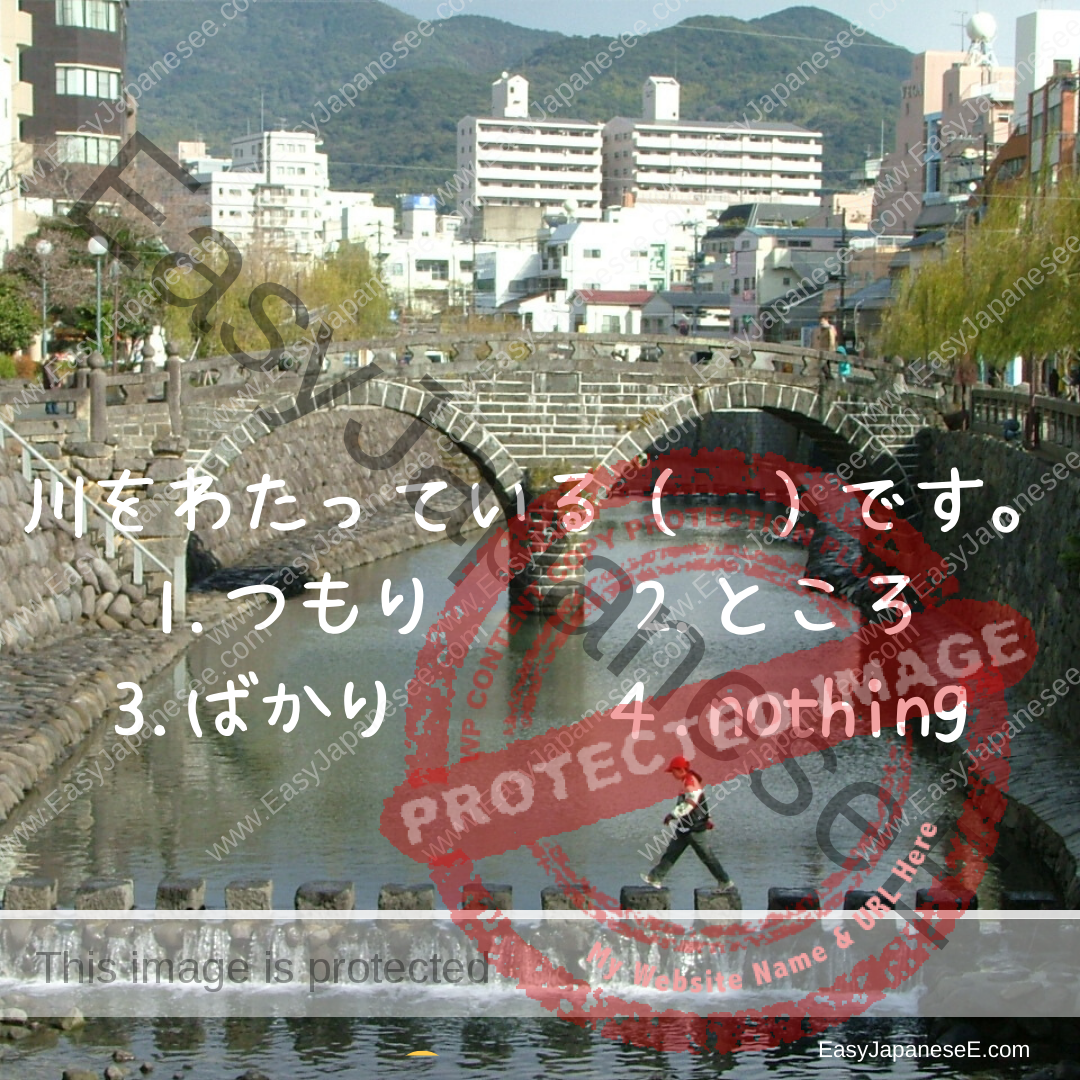
The correct answer is #2, ところ. ところ can be written in kanji, 所, and it usually means a “place” but…
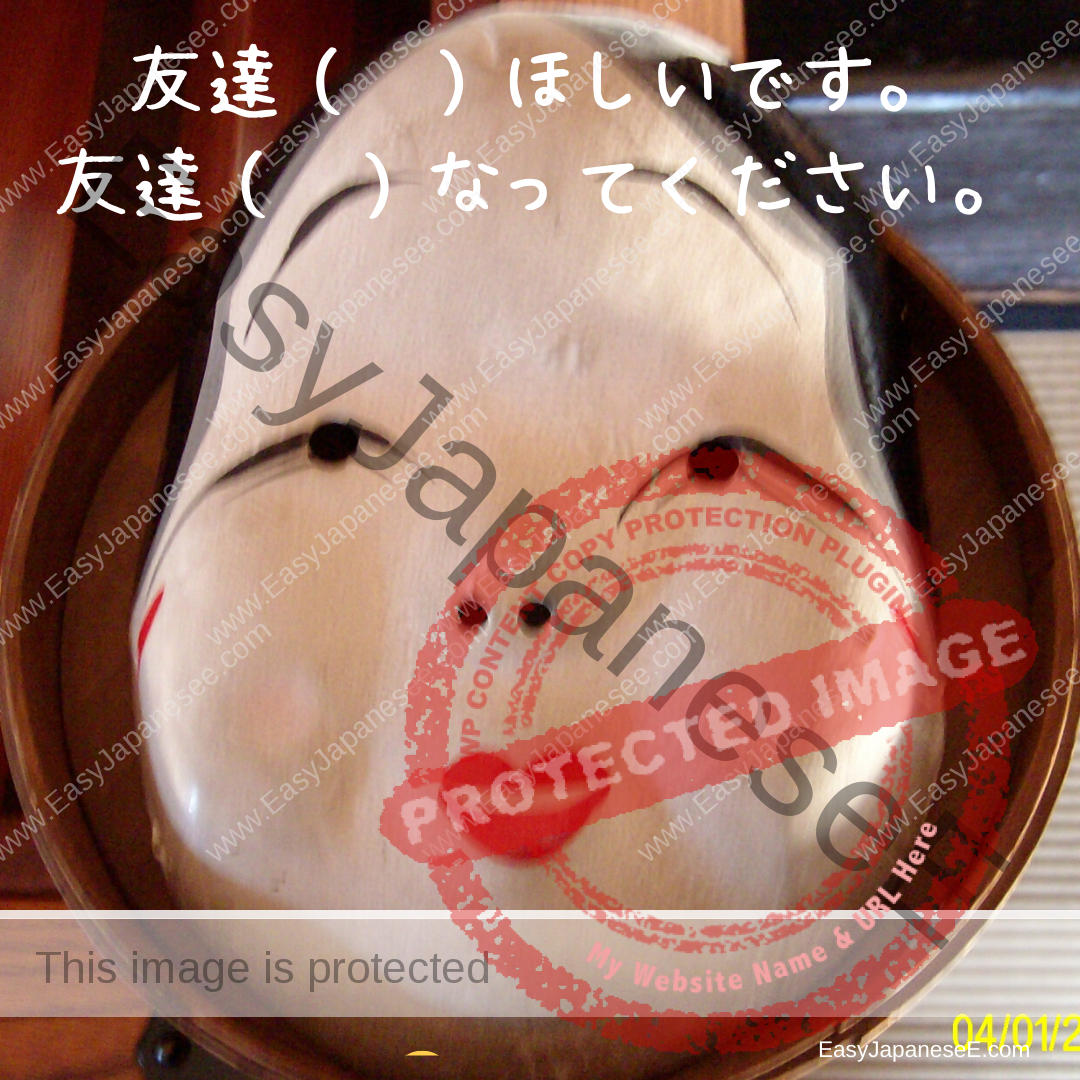
友達( )ほしいです。友達( )なってください。 I think a lot of people here want more friends (友達/ともだち). How do we say that in…
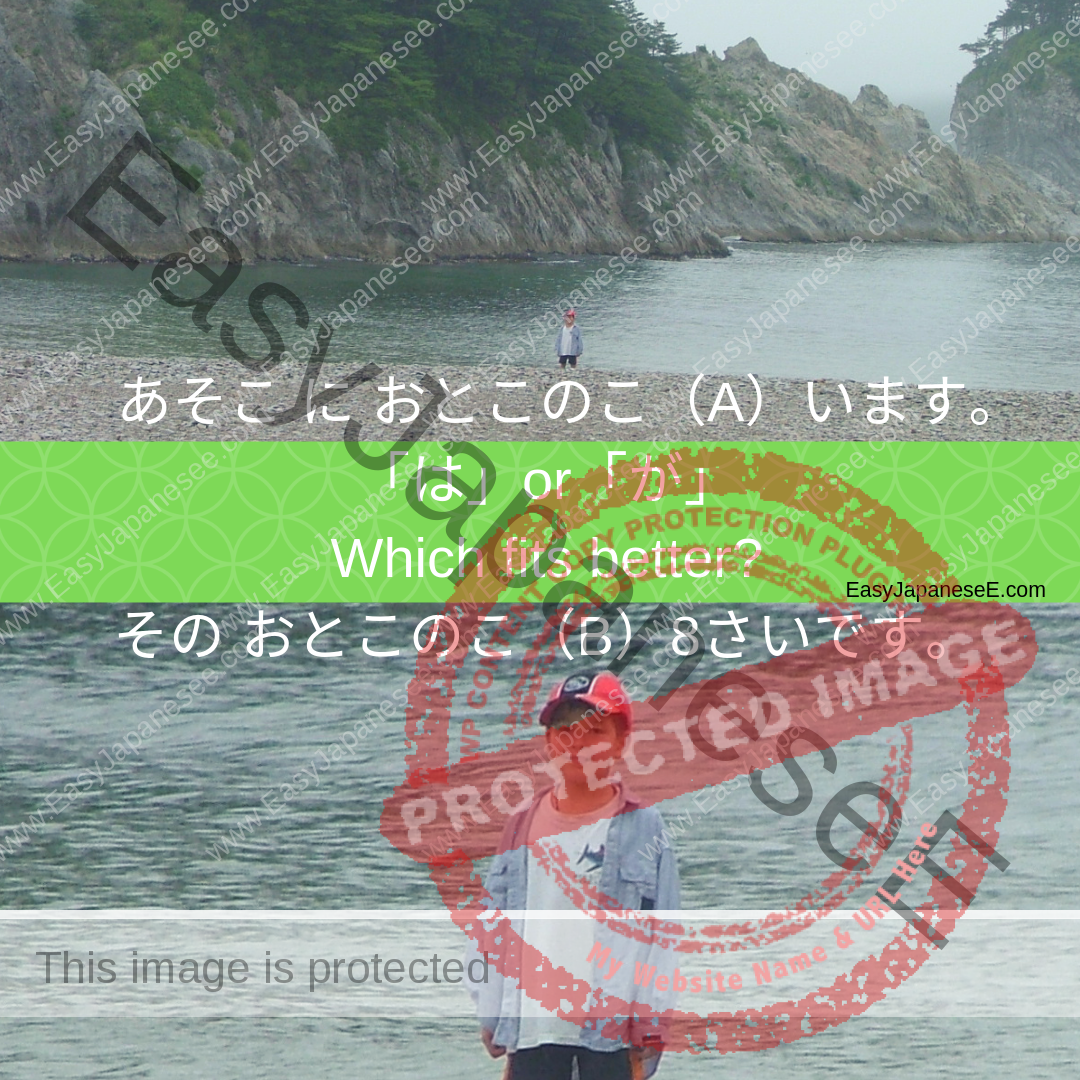
Which fits better in the following sentences, は or が? A: あそこ に おとこのこ (A) います。 B: その おとこのこ(B) 8さい…
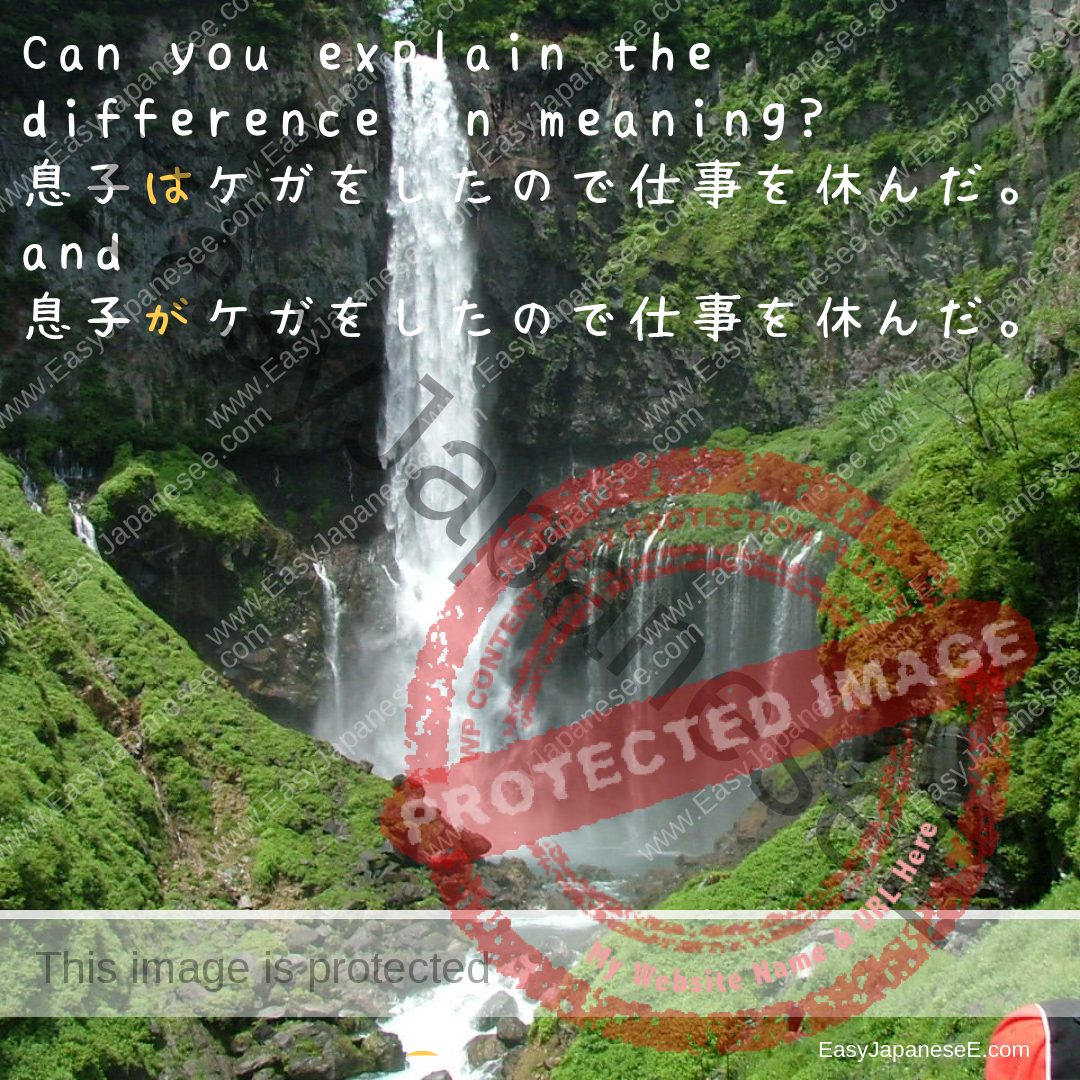
A: 息子(むすこ)は ケガをしたので 仕事(しごと)を 休(やす)んだ。 has quite a different meaning from B: 息子(むすこ)が ケガをしたので 仕事(しごと)を 休(やす)んだ。 I don’t usually…
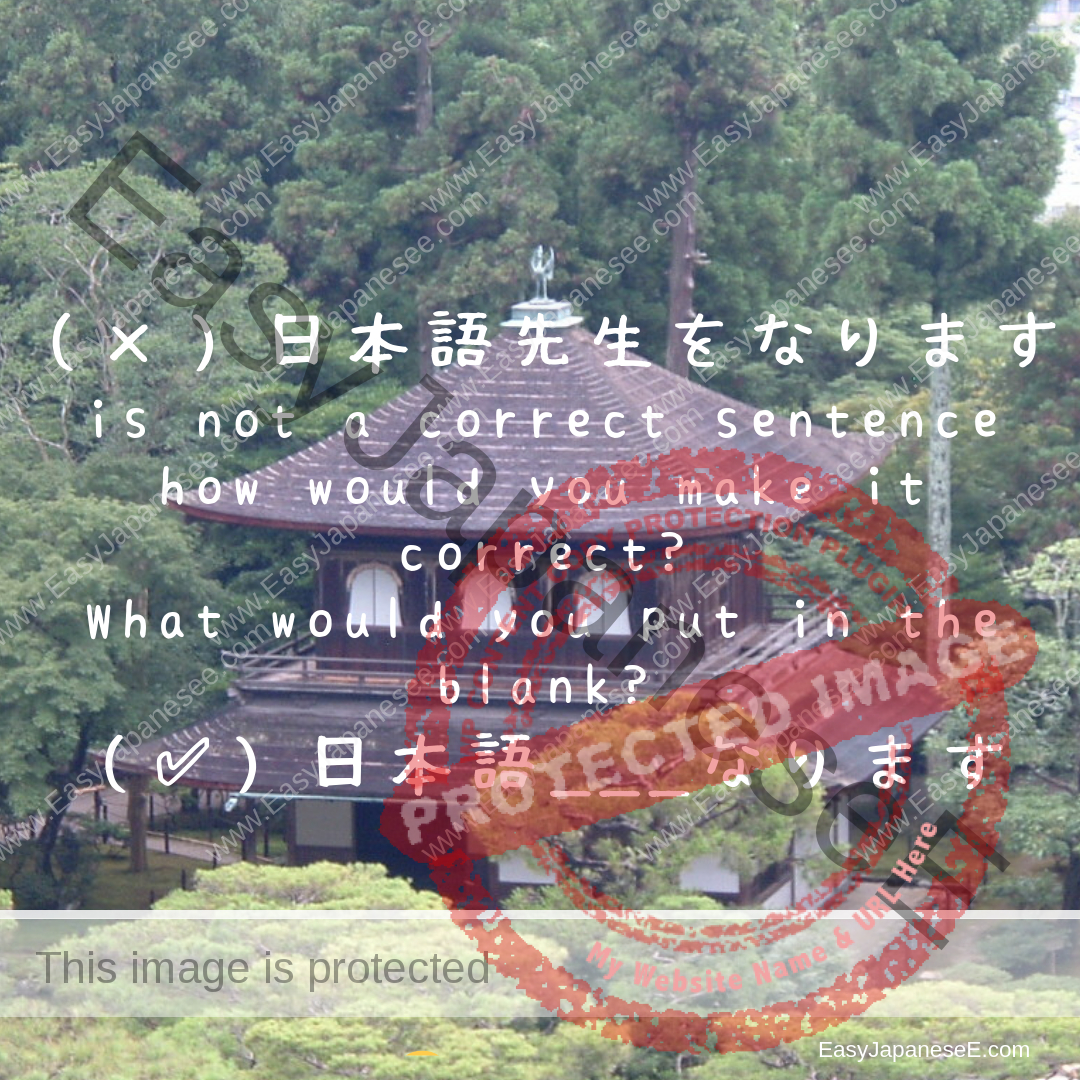
日本語(にほんご)先生(せんせい)をなります is NOT a correct sentence. So how would you fix it? If I ask my Year 12 students, they…
Last week, I talked about “や / ya” and I said it cannot be used to connect verbs. Today’s expression…
